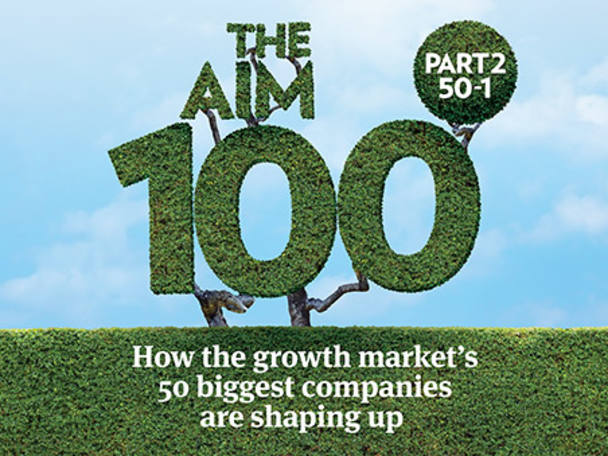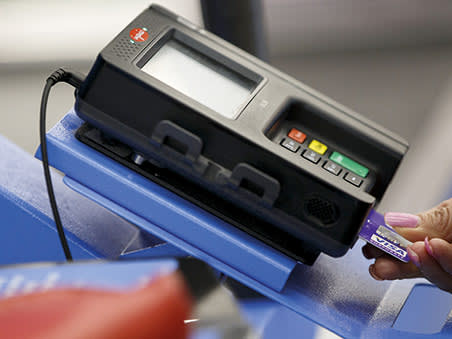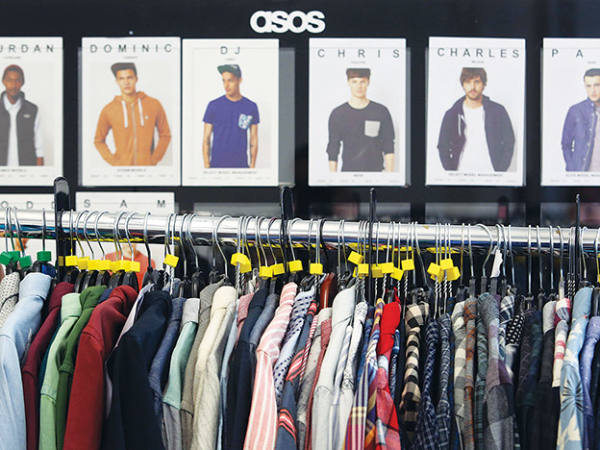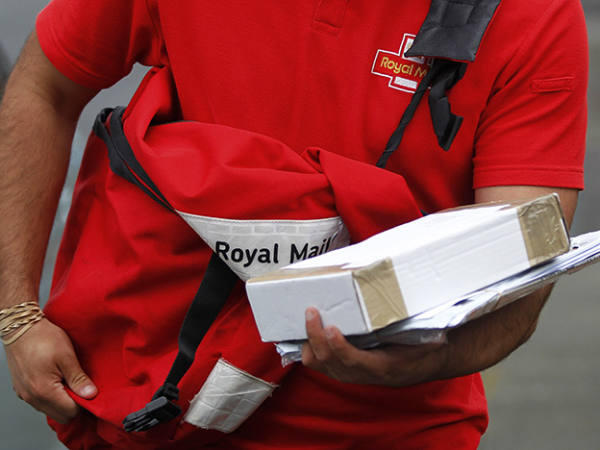50. Hotel Chocolat Group
Along with Joules (JOUL), from last week’s countdown, Hotel Chocolat (HTOC) was the other notable retail listing on the Alternative Investment Market last year. The premium chocolatier now trades at more than double its 148p IPO price, and we think the appreciation in the share price won’t stop there.
The group is entirely vertically integrated – from making chocolate to retail and delivery – which means capital investments are to be expected, but these should help secure growth in the long term. Significant investments made to the group’s factory last year increased manufacturing capacity by around a fifth. As a result, the group was able to fulfil high demand from customers over Christmas – one of its key trading periods.
Like most retailers, Hotel Chocolat faces headwinds from fluctuations in raw material prices and foreign exchange rates, although the group mitigates the effect of both through hedging policies and ongoing supplier negotiations. Although the shares are expensive at more than 40 times forward earnings, they are in an earnings upgrade cycle. We remain fans of one of the best-performing market newcomers in some time. Buy. HR
49. Eco Animal Health
Readers of our sector focus features may have picked up on the animal health market, and how much this sector is growing in light of a rising number of pet owners in the UK. But Eco Animal Health (EAH) isn’t just reliant on its home market for growth.
The animal medicine developer sells its products in more than 60 countries worldwide, with particularly strong performances in the US, China and parts of Latin America of late. Less than 3 per cent of the group’s sales are invoiced in sterling, insulating it against any further weakness.
Aivlosin, its antibiotic, is in high demand because its low dosage rate and ability to move quickly through the animals’ systems – before the meat enters the food chain – has helped to allay fears about microbial resistance in humans. But, like many innovative drug developers, the shares bring a decent dose of risk, and don’t come cheap. For this reason, we’ve kept ourselves on the sidelines. Hold. HR
48. Faroe Petroleum
Faroe Petroleum (FPM) likes to keep things simple. The oil company may have only a fraction of the production or reserves base of its North Sea peers Premier Oil (PMO) and EnQuest (ENQ), both of which are listed on the main market, but its similar market capitalisation is testament to its conservative approach to balance sheet maintenance over a difficult few years.
This isn’t to say that Faroe avoided investing – on the contrary, the company’s counter-cyclical approach helped fuel a 28 per cent net asset value (NAV) gain in 2016 – moreover that portfolio expansion has not resulted in swaths of debt and a reliance on a single project. It was this approach that no doubt attracted the attention of Delek, which acquired a stake in Faroe at Christmas, just a couple of months before launching an audacious bid for Ithaca Energy.
The prospect of a takeover certainly won’t hurt the share price, nor will the prospect of further good news from the drilling of an appraisal well at the Brasse discovery over the next couple of months. Buy. AN
47. Applegreen
Petrol forecourt retailer Applegreen (APGN) hasn’t even served two years as a public company, but it’s still a favourite among some analysts. Shore Capital recently upgraded numbers for the current year following a solid performance in 2016, and even tweaked EPS forecasts upward for 2018 as well.
A heady year of expansion still meant a 16 per cent jump in gross profit in 2016. Applegreen ended the year with a total estate size of 243 sites, having opened 22 more in Ireland, 15 in the UK and six in the US. This new opening schedule has continued at pace into the new financial year, with a further 12 new openings already confirmed for the year to date.
A weaker sterling did impact the euro-denominated company’s full-year result, but it’s worth remembering that its foray into the US means it should have some exposure to the now-stronger US dollar. For all this growth, the shares aren’t cheap at 23 times earnings, which keeps us in neutral for now. Hold. HR
46. SafeCharge International
In line with its strategy of expanding and diversifying products and services, payment processing company SafeCharge International (SCH) has been moving into new sectors and geographies in 2016, announcing its first airline customer in its travel vertical and launching platforms for new customers in Romania, Italy and Portugal. Alongside this, it took its first steps into card-present and land-based payments acquiring. As part of this strategy it has been looking to maximise the number of low-risk, high-quality customers on its books.
It has also been driving up volumes, increasing transactions processed 17 per cent to $8.1bn (£6.3bn) in 2016, compared with 2015. This was driven by increased volume from existing customers, and the addition of new, high-volume clients. Growth in SafeCharge Acquiring, its dedicated platform, was also impressive, jumping to volumes of $970m for the year, up from $190m in 2015. With a run rate in excess of $1.2bn, the platform is likely to continue growing.
This growth doesn’t look likely to slow. The group reported further expansion in volumes for both its core payment processing and in acquiring since the 2016 year-end. It also expects another $1bn in annualised volumes during 2017 delivered by customers that begin processing during the year.
Acquisitions also look likely to add to organic growth. Cash generated from operating activities was high at 80 per cent of adjusted cash profit and the group finished the year with net cash of $115m. The group is also continuing to “invest significant resources identifying and investigating potential acquisitions”, and seeking to add complementary products.
Safecharge’s growth is undeniable, and it seems to be making all the right moves with its expansion across new areas and the launch of the acquiring platform. The shares are up more than a fifth year so far this year, but this still represents only 14 times forecast earnings, at time of writing, well below the three-year average of 25 times. Cut out the cash on the balance sheet and the valuation looks even better. We maintain our buy call. TD
45. IQE
We tipped IQE (IQE) midway through 2015, and since then the market valuation has almost tripled, buoyed by the ongoing switch from analogue to digital-based control systems in the electronics market, although the commercial offering is utilised across a wide range of high-tech applications.
The group, a supplier of wafer products and services to the semiconductor industry, has established a strong IP platform, providing a conduit to higher-margin licence income. Shareholders would have been greatly encouraged by the performance of the photonics (fibre optics, laser technology) segment during 2016. A 43 per cent rise in revenue fed into an annual growth rate of 35 per cent over the past three years.
However, the investment case has gradually been reinforced by a reduction in sector-specific risk, evidenced by solid revenue growth across wireless, photonics and infrared. IQE has its sights set on what it describes as “global leadership across a range of markets”. That broad-based ambition is serving it well. Buy. MR
44. Accesso Technology
In 2016, Accesso Technology (ACSO) won a contract to supply its ticketing platform to Merlin Entertainments (MERL), one of the largest attraction and theme park operators in Europe.
Scaling up for this contract sent research and development expenditure up to 18 per cent of revenue from 13 per cent in the previous year. But the benefits are expected to increase 2017 pre-tax profit by 9 per cent to $16.7m (£13.4m), according to broker Numis. The group has also been busy refining its Prism ‘smart park’ wearable device, which is due to be rolled out in a North American theme park over the summer.
More recently, Accesso acquired digital distribution hub Ingresso for an initial cash consideration of £17.5m, with an additional earn-out payment worth £10.5m. This will add digital ticket tracking, real-time information and e-commerce partnerships to Accesso’s already extensive portfolio of ticketing solutions. It is only the shares’ steep forward earnings ratio of 34 times which prevents us from upgrading to buy. Hold. MB
43. Telit Communications
The ‘Internet of Things’ – where inanimate objects including houses, vehicles and furniture can be remotely connected and controlled – is not going to arrive overnight. But we are certainly moving in that direction. Today, our bank accounts can be connected to our smart watches and our boilers linked to our phones.
Telit Communications (TCN) is helping to provide such connections through the sale of its hardware and software solutions. Acquisitions have helped to boost the group’s product offering, particularly in short range wireless technologies which are important in connecting objects within a small area. For example, in February the group paid $8m for short-range expert GainSpan. This lossmaking business is expected to dent profit in 2017, but other acquisitions are set to send revenue up by around 15 per cent.
Growth and market expansion is likely to be a slow burner at Telit, but in the long term we think the group is well placed to capitalise on an exciting market. Buy. MB
42. GB
GB (GBG) could never be accused of suffering from an identity crisis – quite the opposite. The Cheshire-based group, an identity management specialist, was originally established to exploit the market in postcode and address information, but is now benefiting from the relentless rollout of digital data sources and the inherent security issues that brings.
As the number of digital transactions increases, so do opportunities for online fraud. The group recorded a surge in revenue and earnings for its March 2016 year-end and adjusted earnings for the year to March 2017 are expected to be 27 per cent ahead. Organic revenue has been boosted by rising demand for fraud prevention systems and targeted upselling of customer registration software, but bolt-on acquisitions are integral to GB’s growth as they enable the group to respond to a rapidly evolving marketplace.
With the imperative for global exports intensifying post-Brexit, it’s worth noting that GB now generates around a third of its revenue abroad, including an expanding client list in China’s financial sector. The market is up to speed here, though. Hold. MR
41. Victoria
Making acquisitions doesn’t automatically mean making more money, but carpet manufacturer Victoria (VCP) seems to be a dab hand, making six successful acquisitions over the past four years.
Much thought has gone into these; two logical additions were the purchase of carpet underlay manufacturers to complement the carpet range. This has all had an impressive effect on earnings, with pre-tax profit more than doubling in the year to October 2016. Since then, it has completed the purchase of Dunlop Flooring, the Australian underlay and hard wood flooring manufacturer, and most recently ventured into mainland Europe with two acquisitions of Netherlands-based Avalon, and GrassInc. The attraction here is that both operate in the fast-growing and high-margin artificial grass market.
The acquisitions are part of Victoria’s strategy to expand the business with earnings-enhancing bolt-on acquisitions, and to drive profitability further through cost synergies. Strong cash generation meant that in the last financial year net debt fell from 2.3 times cash earnings to 1.9 times. Buy. JC
For our complete run down from 50-1 see below:
And for 100-51:









